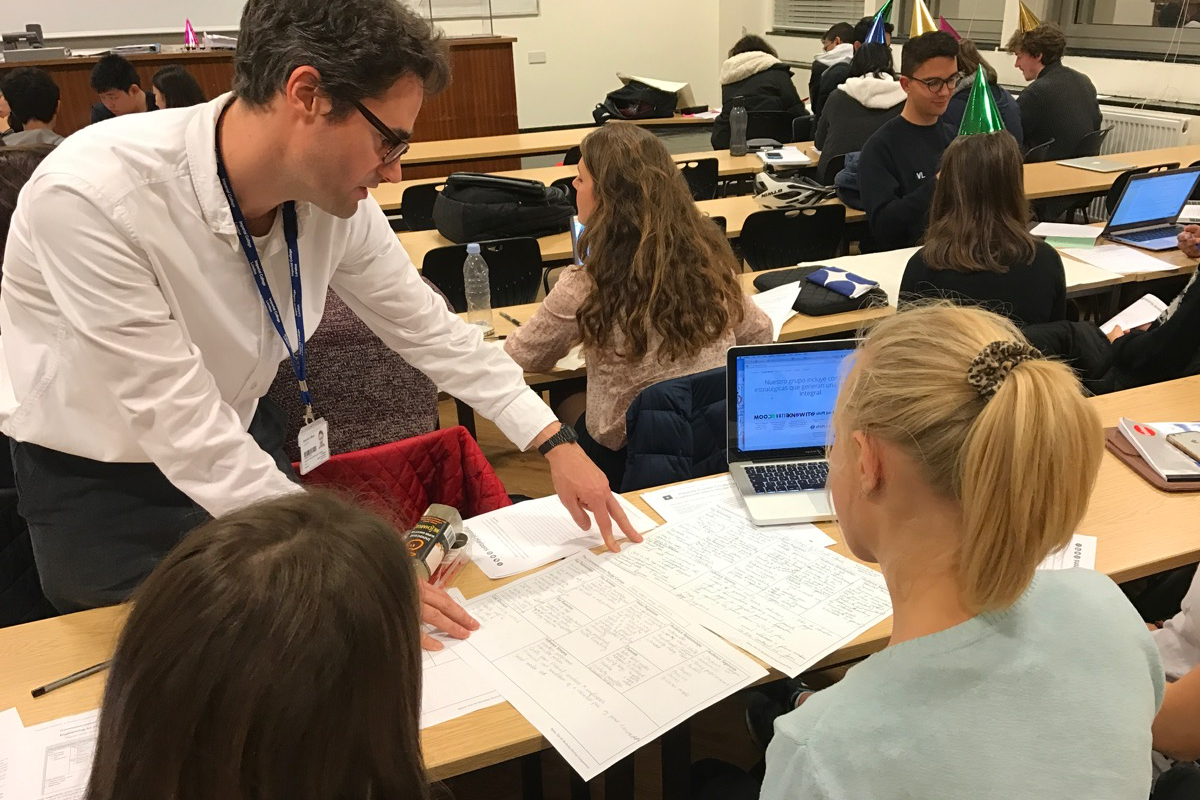I have now been teaching in the Global Challenges field for over a year. Most of my previous Higher Education teaching had been in social sciences following a fairly standard lecture-seminar format. On joining the Global Challenges team, I was looking forward to adopting more innovative pedagogical practices and, a year on, I have not been disappointed.
For me, the most distinctive factor underlying the approach here is the commitment to the holistic development of people – both students and staff. Being people focused, and developing their existing knowledge, skills and experience, necessitates a recognition of different individual needs. This has required more work but leads to a varied and stimulating learning environment. Accordingly, I have been impressed by the diverse range of content and skills that have been covered, all under the umbrella of Global Challenges and sustainable development.
This is partly facilitated by the amount of control we give to the students to choose their direction of study. Such autonomous learning clearly motivates students, but the freedom it provides can also be quite testing. A typical comment in feedback from a second year undergraduate stated: “I found it challenging but also interesting and inspiring”. Personally, I have found that with the appropriate monitoring and scaffolding, it is very worthwhile, and even at first year undergraduate level it has been rewarding to see how students thrive on the opportunity to select and design their own learning pathways.
This year, however, I have particularly enjoyed leading second year undergraduate courses. I have seen interdisciplinarity being pushed to new levels with the students (and staff) benefiting as a result. On these courses, students are set up to undertake group work on projects on sustainable development through a real life, authentic case study on a community in the developing world. This year we teamed up with Engineers Without Borders UK to investigate a town on the north coast of Peru. Students worked with others from different disciplinary backgrounds across the College and then employed social scientific methods to explore the social, political and environmental context before embarking on their project.
Students chose the kind of project they would like to pursue. Most focused on a practical and technological design to enable sustainable development, but others elected to work on a proposal for a business enterprise, while others created a piece of artwork, and, in stark contrast, others focused on the local community here on campus in South Kensington. The resulting educational experience was student led and produced projects with very different focuses. This enabled peer review exercises where students evaluated work from significantly distinctive perspectives. Consequently, students employed interdisciplinarity on multiple levels and I have been impressed by the freedom to think creatively and productively that this mode of working has inspired. Indeed, students commented on how they enjoyed activities and the impact it has on their thinking more generally:
It affected my course, Mechanical Engineering, positively because I started thinking out of the box for engineering situations. It was also a very fun exercise that I looked forward to doing
During this year, established aspects of my practice have also changed and this has impacted on me too. For instance, a highly responsive approach to teaching has been encouraged by my line manager. Initially, I was quite uncomfortable changing my session plans, but I have seen the value of introducing flexibility and responsiveness in improving my ability to improvise. More broadly, this has also improved my confidence when introducing unfamiliar activities, new to me and the students. For example, we pushed students to think on their feet with new ‘Pressure Cooker Challenges’, a range of ‘creativity exercises’ and to use sketchbooks to inspire new ideas. And, it has been heartening to see positive feedback on these tasks. One student enthused
I loved being able to display my ideas through artwork
and another stated
creativity is usually something I struggle with – but I have learned about using different techniques to come up with creative ideas.
These comments reflect the valuable learning opportunities that Global Challenges provide for students. This year, I too have been challenged in new ways and I have certainly developed myself. Now I am looking forward to next year.
